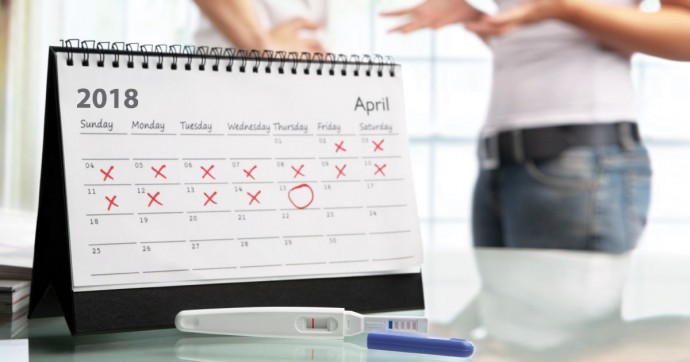Malaysia’s total fertility rate in 2016 was the lowest ever recorded, according to the Vital Statistics Malaysia 2017 report. The total fertility rate per woman aged 15-49 is 1.9 babies, which is a decrease from 2.0 babies in 2015.
The World Health Organization (WHO) estimates that over 10% of women have been unsuccessful to get pregnant despite being in a relationship for five years or more. Infertility does occur in men and women. In general, infertility is the inability to get pregnant or conceive after at least one year of regular unprotected sex. So, how can you and your partner improve your chances of having a baby?
7 ways to boost your Infertility
There are various factors that affect the reproductive health of both men and women. These are some measures that can be taken to boost your fertility.
1. Watch your weight
Being overweight or underweight can affect your fertility. For women, the amount of fat in your body can influence your menstrual cycle. Overweight or underweight women may have irregular cycles and ovulate less often, thus lowering their chances of conception. Overweight or underweight men tend to have lower sperm concentrations, while obese men may have erectile dysfunction. You should strive to get a normal BMI when trying to conceive. Keep a healthy lifestyle by watching your diet and exercising regularly.
2. Think before drinking
Too much caffeine or alcohol can be bad for your fertility. Men who drink too much alcohol may have decreased libido and sperm quality, whereas for women, overconsumption of alcohol may lead to a decreased probability of conception and a longer time to get pregnant. Having too much caffeine (>500 mg/day) may also have negative effects on women’s reproductive health. A study found that women who drank 4-7 cups daily increase nearly 80% chance of still birth. Limit your alcohol and coffee intake when trying to conceive, and totally stop drinking if you are pregnant.
3. Stop smoking
Men who smoke are found to have a decrease in sperm quality and fertilising capacity. For women, smoking can damage their eggs, interfering with the fertilisation and implantation process. A study showed that women who smoked fewer cigarettes (0-10 per day) had a higher pregnancy rate (52.2%) than women who smoked more cigarettes (34.1%). Smoking is also harmful to your baby. Stop smoking if you are having a baby.
4. Know your fertile window
Take note of your menstrual cycle and your ‘fertile window’. Ovulation usually occurs on Day 14 of your cycle, and your fertile window is on the day of ovulation and 4-5 days before. This is applicable if you have a regular cycle of 21-35 days. Also figure out your fertile window by using ovulation predictor kits that are available at pharmacies, or by noting daily changes in your basal body temperature. Improve your chance of conception by having regular intercourse during your fertile window.
5. Regular love – making
It may seem obvious that you should have more sex when you are trying to have a baby, but regular intercourse can also improve your menstrual cycles and hormone production. Regular intercourse can also improve sperm quality in men, instead of delaying lovemaking. However, try not to turn it into a chore and put stress on your partner and yourself.
6. Use suitable lubes
Lubricants are useful when you have regular sex, but unsuitable lubricants can impact sperm motility and function. Check if the lubricants have any spermicidal agents. Do not use commercial water-based lubricants as they can inhibit sperm motility. Some natural lubricants are also unsuitable, such as saliva and olive oil. You can find sperm-friendly lubricants at the pharmacy.
7. Seek serenity
Stress and depression can also lead to infertility. Stress can affect sperm quality in men and decrease chances of getting pregnant in women. Stress may also cause irregular menstrual cycle, hence affecting chances of conception. How stress can affect fertility is still unclear, but studies have shown a relationship between stress and infertility. Manage your stress through relaxation methods or get support from a mental health professional.
Myth vs fact
There are claims that some foods like soy or pineapple can affect fertility, but no strong evidence shows that eating any specific foods would have negative or positive effect on fertility.
There are more ways to boost your fertility and improve your chances of having a baby with your partner. The important things are to stay positive, believe in your partner, and keep trying. These tips are meant to optimise your chances, but different tips have different degree of success. If you cannot conceive or get pregnant even after a year of regular unprotected sex, you and your partner can consult a fertility specialist to check for reproductive problems.
An educational collaboration with Obstetrical and Gynaecological Society of Malaysia.















Comments